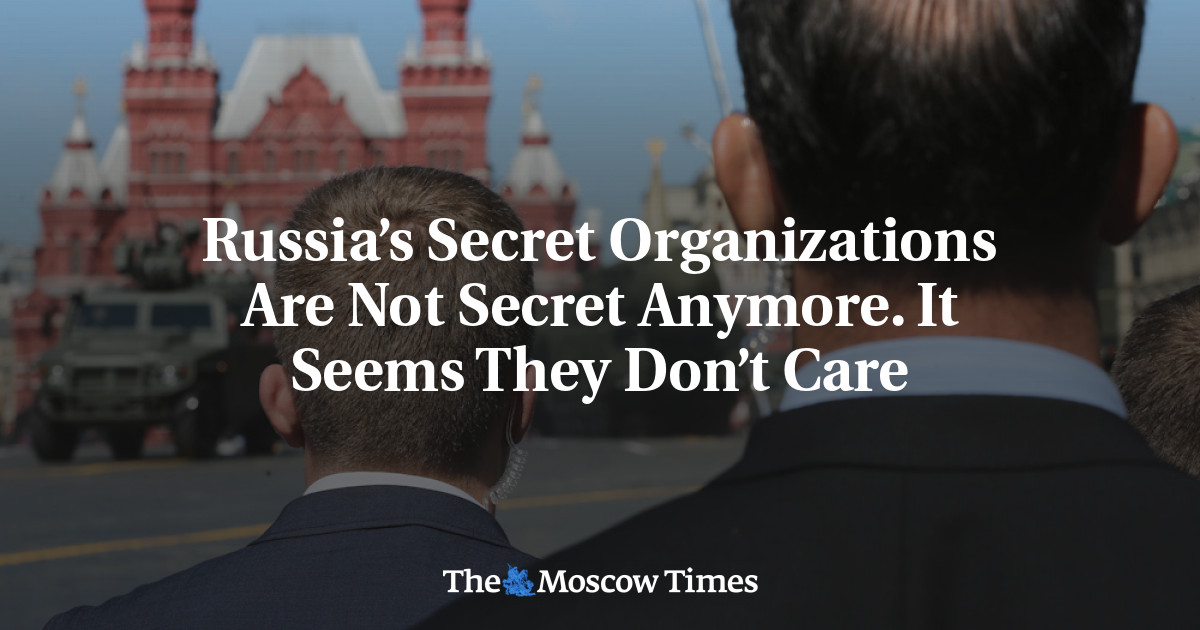- Joined
- Apr 18, 2013
- Messages
- 94,313
- Reaction score
- 82,702
- Location
- Barsoom
- Gender
- Male
- Political Leaning
- Independent

Russia’s Secret Organizations Are Not Secret Anymore. It Seems They Don’t Care
Opinion | What has become clear is that to expect the Kremlin or its secret services to be embarrassed when they are unmasked is to miscalculate greatly.
12/17/20
There seems to be a global shift in the secret services world these days — the Russian organizations are not that secret anymore. They do conduct secret operations, but then they routinely and inevitably get exposed — the rank-and-file members involved, the departments in charge and the substances and technologies they use, at home or abroad. This has become a common practice for many of the Kremlin’s supposedly secret and sensitive operations, in cases from cyberattacks to poisonings. And the Kremlin and secret services seem to have adjusted to this new reality just fine. The Bellingcat unmasking of the Federal Security Service (FSB) operatives involved in the Navalny operation and the follow up makes this very clear. The report provides detailed information about a number of FSB operatives involved in shadowing Navalny. It also exposed the role of the NII-2, one of two main FSB research facilities intimately involved in the FSB’s Navalny operation. This information made a crucial contribution to our understanding of what happened to Navalny in August, though some key elements of the operation remain murky, particularly the chain of command. Because the NII-2 is a research facility, not an operational unit, there should be some unit in Lubyanka headquarters to coordinate a team with the FSB’s numerous regional departments and update the group with intelligence on the Navalny team’s movements provided by local surveillance teams. It paints a pretty damning picture of the Russian secret services’ poisoning program.
When Putin returned to the Kremlin in 2012, his Defense Minister Sergei Shoigu was determined to get the GRU back on its feet. For that, the GRU needed more people, but where to get these new people from? The only source of recruits available was the special forces. It was these kind of operatives who were assigned to the operation in Salisbury, and they changed the modus operandi of Russian intelligence. They get caught red-handed but they are not afraid of that, and that provided the Kremlin with a sort of protection from the new world of transparency. Unlike traditional spies, this lot are not afraid of being exposed, or expelled from the country. They have no exalted positions in an embassy to fear losing. They don’t ask questions about the operation because they live in a world with no difference between war and peace, so no questions about collateral damage either. The training for this kind of operative is cheap, and the supply of potential recruits plentiful. Putin, an intelligence officer by training, understands this well. Besides, if you are dealing with a country already accused of so many things, from downing a civilian plane to invading a neighboring country, another accusation won’t change much and could have a liberating effect. The GRU was apparently first to grasp this new reality, and the FSB followed suit. The FSB is in a perfect position to do so. It has large human resources at its disposal, operatives in regional departments who don’t have the bad habit of questioning orders.
The Kremlin rarely interacts with international courts at The Hague, doesn't fully cooperate with Interpol, and the Russian constitution [ very conveniently ] forbids the extradition of Russian citizens.
In addition, US president Donald Trump has provided Putin with a virtual pass for the past four years. The result of all of this is a pariah regime that doesn't care if its crimes on foreign soil are exposed.
